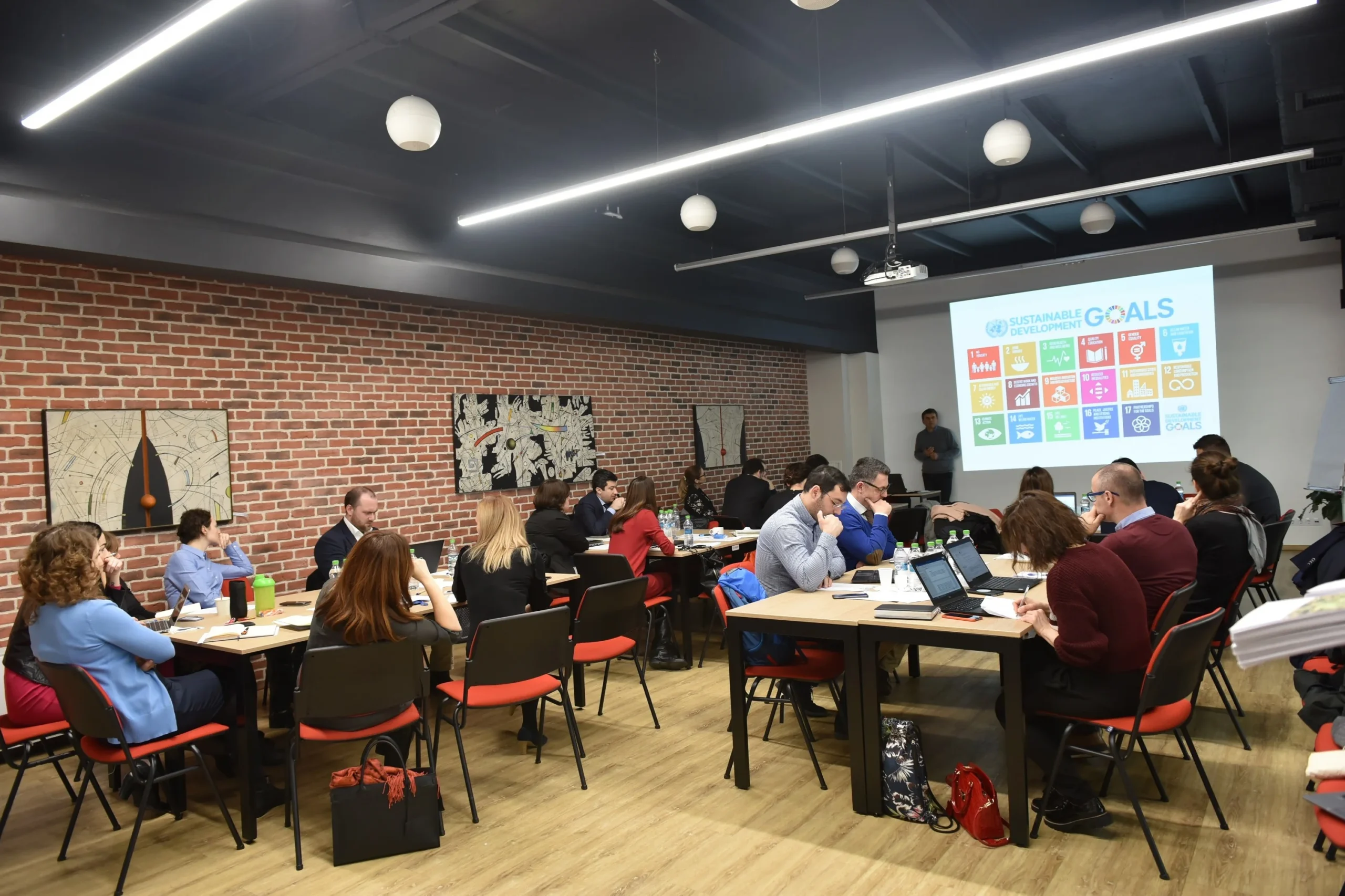Enabling Environment for Sustainable Enterprises in Moldova

What Has Been Done:
The ILO assisted the National Confederation of Employers of the Republic of Moldova (CNPM) in conducting an EESE assessment. Consultations between the government and employers on the assessment results led to reforms, including simplifying registration and licensing procedures, reducing the number of state inspections and control bodies, improving tax policies and administration, approving a new law on public procurement, making labor law more flexible, and developing the legislative framework for dual training and apprenticeship.
As a follow-up, the ILO was requested to support a new tripartite assessment of the enabling environment and identify priority areas for further reforms. This new assessment is based on a desk review of recent findings on the business environment in Moldova, interviews with government officials, employers, and trade unions, and a perception survey among business owners and workers.
The Survey and Its Sample:
The updated assessment was launched, and the survey sample consisted of 400 business owners and 107 workers. Survey respondents were spread across Moldova, with the majority located in Chisinau Municipality (61%). The sample focused on the manufacturing industry (37.5% of respondents) and services (23.3%). Regarding the size of the studied enterprises, most were micro (9 employees or less, 64.5% of respondents) or small (10 to 49 employees, 25.5% of respondents).
Results:
Good governance, social dialogue, and education, training, and lifelong learning emerged as three key areas of concern. In particular, bribery and corruption were identified as major issues by 87.3% of respondents. Additionally, the majority of those surveyed identified the need for greater access to training, better education, and more support for business development in Moldova. Social dialogue also emerged as a key concern, with 40% of enterprise respondents stating that they believed social dialogue was either inefficient or entirely ineffective at national, sectoral, and territorial levels.
The findings of the EESE assessment were disseminated to representatives from the government and social partners and validated during a workshop in September 2019. At this workshop, tripartite participants agreed on priority areas for action and developed an action plan focused on (i) the enabling legal and regulatory environment, (ii) education, training, and lifelong learning, and (iii) social dialogue, to create a more enabling environment for sustainable enterprise development in Moldova.
 Albania
Albania Algeria
Algeria Andorra
Andorra Argentina
Argentina Armenia
Armenia Australia
Australia Austria
Austria Azerbaijan
Azerbaijan Bahrain
Bahrain Belgium
Belgium Bolivia
Bolivia Brazil
Brazil Bulgaria
Bulgaria Cambodia
Cambodia Cameroon
Cameroon Canada
Canada Chad
Chad Chile
Chile China
China Colombia
Colombia Costa Rica
Costa Rica Croatia
Croatia Cyprus
Cyprus Czechia
Czechia Denmark
Denmark Ecuador
Ecuador Egypt
Egypt Finland
Finland France
France Georgia
Georgia Germany
Germany Ghana
Ghana Greece
Greece Hungary
Hungary Iceland
Iceland India
India Indonesia
Indonesia Ireland
Ireland Italy
Italy Jamaica
Jamaica Japan
Japan Jordan
Jordan Kazakhstan
Kazakhstan Kenya
Kenya Kuwait
Kuwait Latvia
Latvia Lebanon
Lebanon Libya
Libya Lithuania
Lithuania Luxembourg
Luxembourg Malaysia
Malaysia Maldives
Maldives Mali
Mali Malta
Malta Mexico
Mexico Moldova
Moldova Monaco
Monaco Morocco
Morocco Netherlands
Netherlands New Zealand
New Zealand Nigeria
Nigeria North Macedonia
North Macedonia Norway
Norway Oman
Oman

